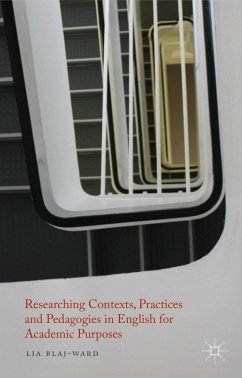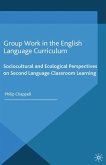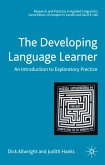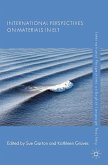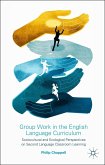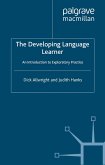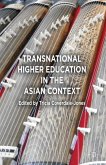This book is a point of reference for EAP professionals planning to conduct or commission research into learning, teaching, professional development or quality assurance in EAP. It draws on academic and professional debates to inspire further research and practical initiatives to enhance EAP provision.
"This monograph from Lia Blaj-Ward is a welcome addition to the literature and resources that support researcher and research-engaged development in EAP and related fields. ... a primer not only for those engaging with research active practices in EAP but also for those, perhaps new to the field, who would like an overview of the EAP professional experience. It also serves as a useful map of what is currently known to diverse research in EAP ... ." (Steven Peters, BALEAP, The gobal forum for EAP professionals, baleap.org, March, 2016)
"The book aims to provide contextual information, suggestions for worthwhile areas of investigation and summaries of influential recent research. ... A wealth of invaluable information can be found in this book to guide researchers new to a particular aspect of EAP, or to postgraduate students who are searchingfor worthwhile topics to investigate. ... provide a comprehensive guide to research options, as well as detailed overviews of previous studies in key areas." (Rosemary Wette, New Zealand Studies in Applied, Vol. 21, 2015)
"Researching Contexts, Practices and Pedagogies in English for Academic Purposes is as timely as it is wide-ranging, well-thought and suggestive. It becomes a much-welcome contribution to the literature, as it offers an impressively detailed snapshot of current trends and approaches within educational research as these have been directly applied to EAP. ... The monograph is impressively comprehensive, profusely documented and coherent." (Antonio Jiménez Muñoz, Revista de Lenguas para Fines Específicos, Issue 21, 2015)
"This book provides an overview of a large research field which overlaps with other types of educational research: contexts, tertiary learning, teaching and literacy, and even themes within international education. The book is intended to be about the work and research of English for Academic Purposes (EAP) professionals (tutors and managers), with this same group being the intended audience. ... This book by Blaj-Ward could play a key role in the expansion of EAP practitioner research." (Constantine C. Dimitriou, Journal of Research in International Education, Vol. 14 (2), 2015)
"The book aims to provide contextual information, suggestions for worthwhile areas of investigation and summaries of influential recent research. ... A wealth of invaluable information can be found in this book to guide researchers new to a particular aspect of EAP, or to postgraduate students who are searchingfor worthwhile topics to investigate. ... provide a comprehensive guide to research options, as well as detailed overviews of previous studies in key areas." (Rosemary Wette, New Zealand Studies in Applied, Vol. 21, 2015)
"Researching Contexts, Practices and Pedagogies in English for Academic Purposes is as timely as it is wide-ranging, well-thought and suggestive. It becomes a much-welcome contribution to the literature, as it offers an impressively detailed snapshot of current trends and approaches within educational research as these have been directly applied to EAP. ... The monograph is impressively comprehensive, profusely documented and coherent." (Antonio Jiménez Muñoz, Revista de Lenguas para Fines Específicos, Issue 21, 2015)
"This book provides an overview of a large research field which overlaps with other types of educational research: contexts, tertiary learning, teaching and literacy, and even themes within international education. The book is intended to be about the work and research of English for Academic Purposes (EAP) professionals (tutors and managers), with this same group being the intended audience. ... This book by Blaj-Ward could play a key role in the expansion of EAP practitioner research." (Constantine C. Dimitriou, Journal of Research in International Education, Vol. 14 (2), 2015)

